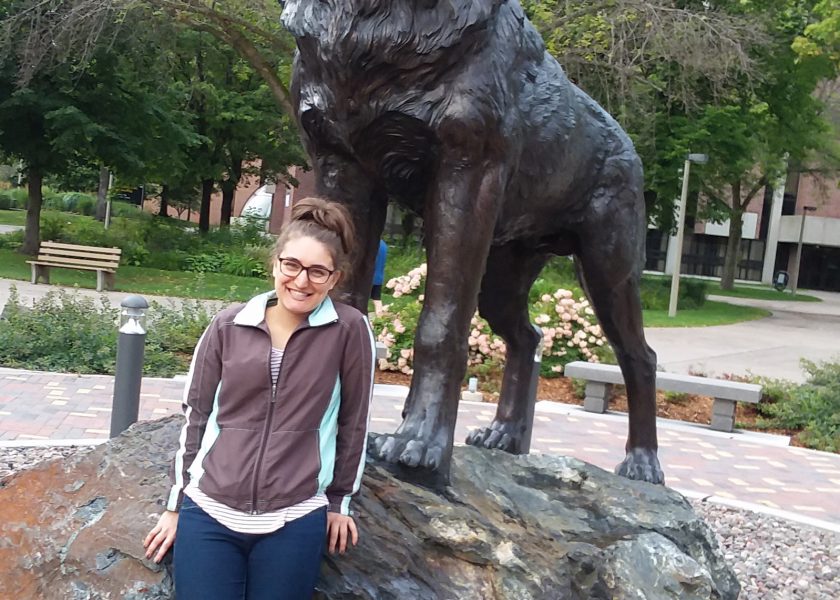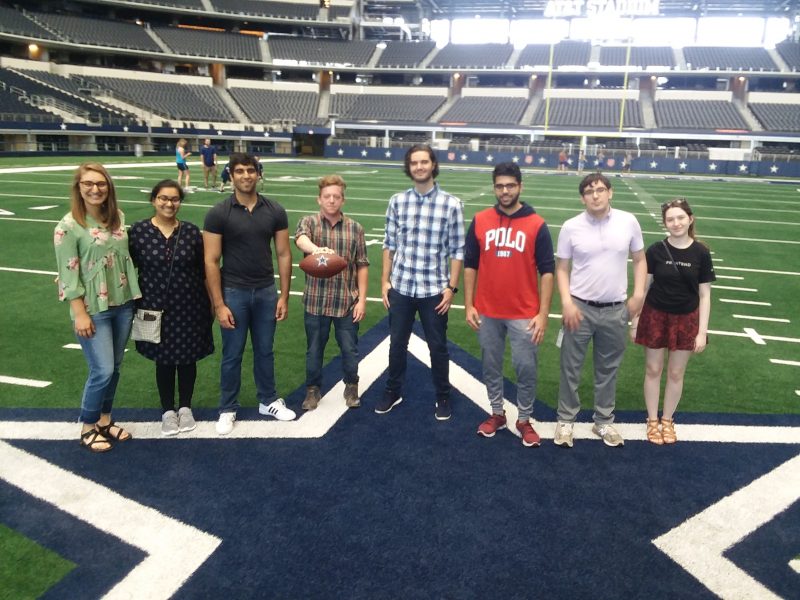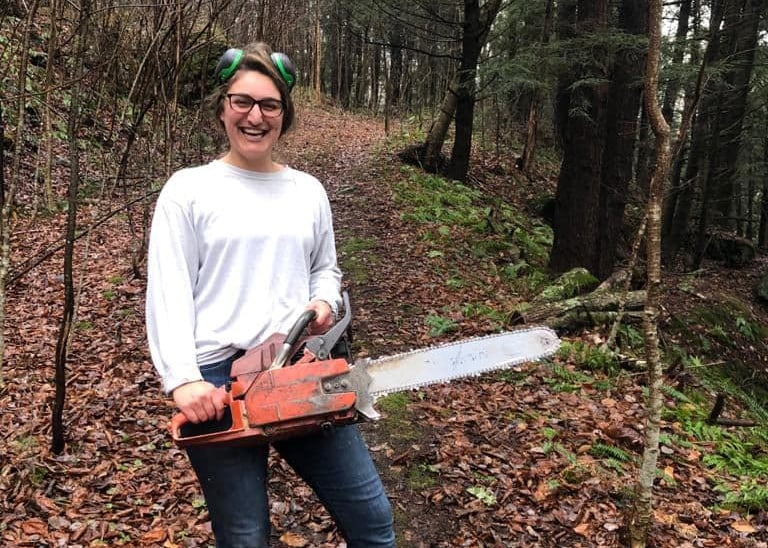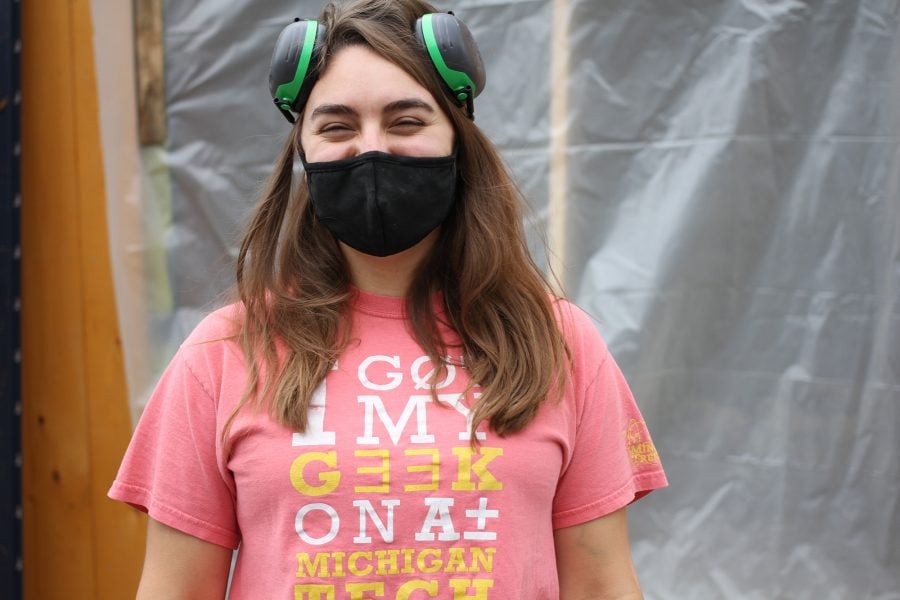Annalisa Wiesner’s “why did you become an engineer?” story is a familiar one. But through her own reflections and a little help from Pavlis Honors College, Annalisa’s personal pathway led her to become an author, an architect, a builder, and a Michigan Tech graduate in mechanical engineering with ideas on how to combine creativity, curiosity, and technical know-how into a career path custom to her interests. Her “What will you do now that you’re an engineer?” story has been shaped by her time in the Pavlis Honors College.

“Honestly? I threw the mailer away.”
“My parents always told me that I was good at engineering, and that I was creative, and that I should look into engineering as a career.” After two years at community college exploring engineering courses, Annalisa transferred to Michigan Tech.
“Right before I started at Michigan Tech, I got the mailer about the honors college, and honestly? I threw it away without even opening it. I didn’t want to be an honors student in college. I had been an honors student for a long time [in high school], and I wanted to be done with the stress of being in honors.”
Fortunately, Annalisa had a friend in the Honors Pathway Program. A lot of the things her friend was learning in her honors classes—like personal growth, leadership skills, and incorporating school into her life instead of going to school just because it was the next expected thing to do—resonated with Annalisa.
“When I joined Pavlis, I was worried that I wouldn’t have time for it and that it would be too stressful. Pavlis actually made my life a lot less stressful because I learned how to manage myself and manage my work. And I did things that were really interesting to me and that gave me energy and were creative and exciting and not not just schoolwork. My life felt a lot better once I started with Pavlis. ”

Fast facts: Annalisa’s Pathway
Annalisa graduated in December 2020 with a degree in mechanical engineering.
Immersion experience: Internship with CommScope, an American global network infrastructure provider company, in their Richardson, Texas office
Honors project: writing a children’s book about her hometown of Traverse City, Michigan.
Academic enhancement: the design/build semester program at Yestermorrow Design/Build School. In the program, she joined a team that researched, designed, and built an architecturally innovative high-performance shelter.
Leadership/mentorship activity: worked in the toddler room at BHK Child Development in Houghton
[Learn more about pathway components]

Academics, enhanced (with chainsaws)
Reflection and Design Thinking are two key parts of the Honors Pathway Program. Try something, think about the experience, and base your next steps on what you’ve learned. Annalisa’s immersion experience, an internship, made her realize she wanted to try a self-directed creative project. So she wrote a children’s book for her honors project. After more reflection, she had an idea for an academic enhancement.
By her senior year, Annalisa knew that she wanted to find a career that got her away from a desk, where creativity and dreams and design could come together. “I had this crazy idea to be a treehouse engineer, to design and build liveable, sustainable treehouses as a career.”
Some research led to Yestermorrow Design/Build School in Vermont. Their treehouse class was full, but they did offer a 16-week, 15-credit immersive program that “takes up to 15 students from a variety of backgrounds through an architectural design process to the substantial completion of a single, high-performance, year-round structure. Students, while completing a 15-credit course load, receive instruction in design, assembly and detailing, and building performance while exploring group process, definitions of sustainability, and relevant contexts.” [Source]
Building an knowledge base in an area that complements the focus of an honors experience? That’s an academic enhancement. After talking to her honors and in-major advisor, the registrar, and more, she had a plan: her last semester of college would be spent in Vermont. Four credits would apply to Senior Design, and the rest would form her academic enhancement for her honors pathway.
The Yestermorrow team designed a building for a customer who needed flexibility. It could be a residential space. It could be a small business space. It could be a short-term rental. And, per the customer’s request, you can keep the front tire of a bike fixed in a center spot and rotate the rest of the bike 360 degrees around that pivot point without running into anything. (And yes, Annalisa got to work on a treehouse while at Yestermorrow.)

“My experiences are 100 percent going to impact what I do after graduation,” says Annalisa. “One hundred percent.”
“When you know how things work, you can make things that are really cool and really creative. And that’s what I want to use my degree for.”
Why Pavlis?
Annalisa’s pathway components added a lot to her resume. But Pavlis added more than bullet points on a resume. “I think the biggest benefit that I received personally from the honors college is that I learned how to reflect on my circumstances and my experiences. I’ve gone back to that idea of reflection so many times, and I write reflections now on things that don’t have anything to do with the honors college. I know how to think through my experiences better because I was asked to do that in Pavlis. I’ll go and reflect on a problem or an event, and I’ll come up with some really profound things to help me know myself better and help me to choose a direction for my life. Pavlis taught me the tools that I can use to design my life.”